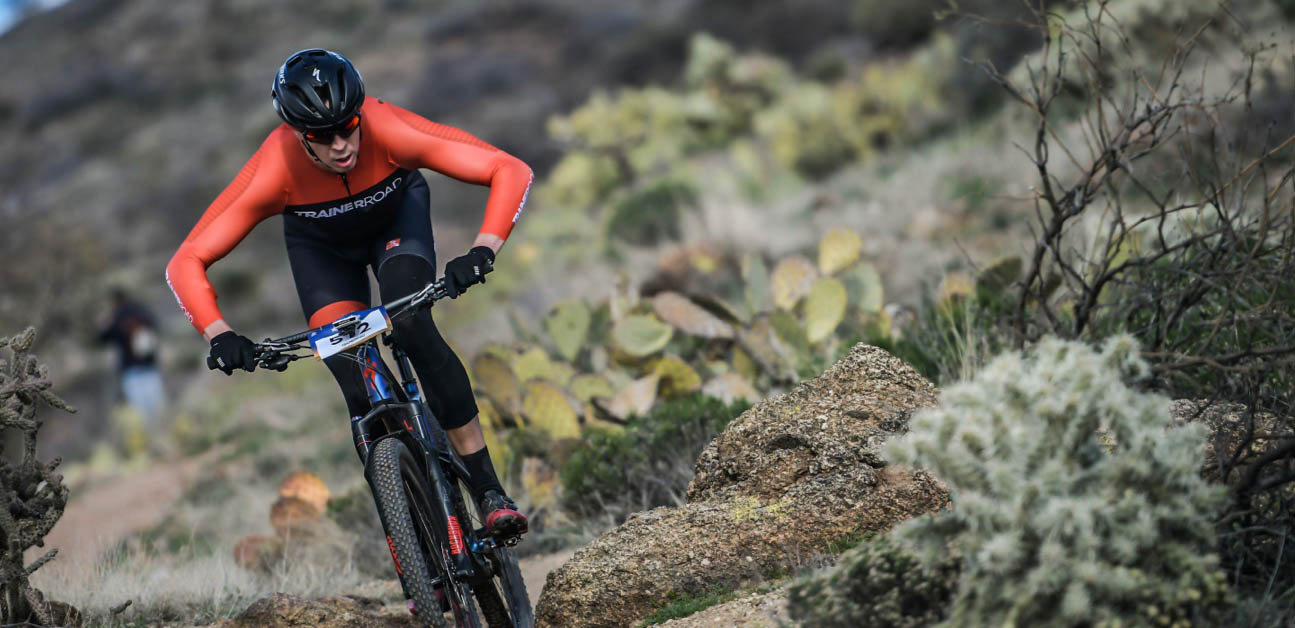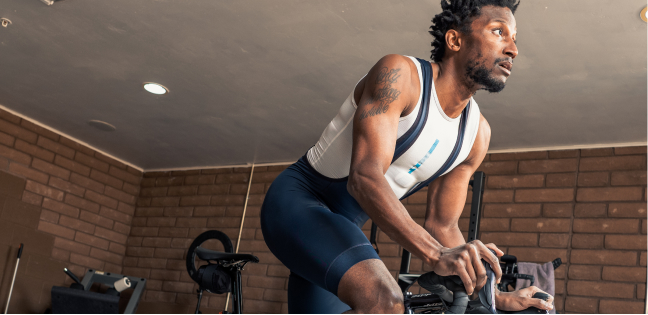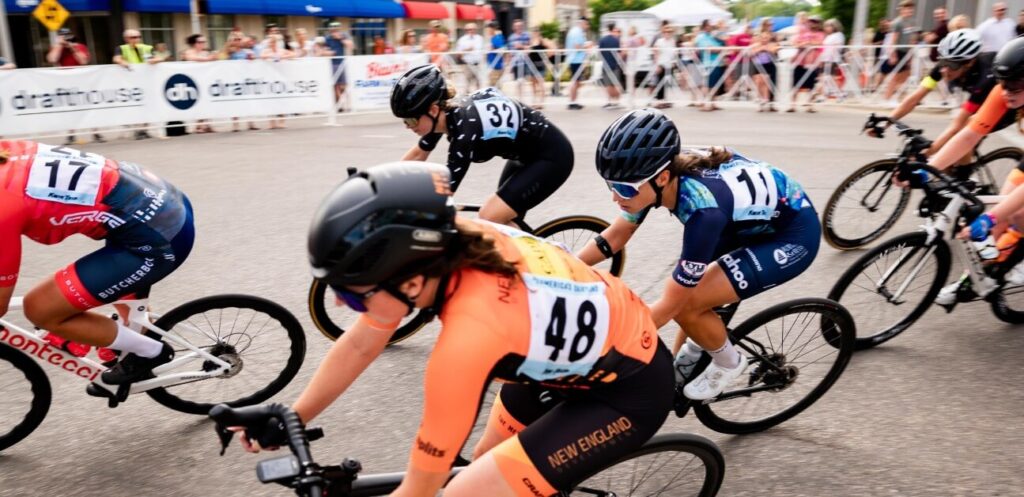Making cyclists faster is more than just a job for us at TrainerRoad. It’s something we take personally, since many of us behind the scenes here are cyclists, too. From professional racers to absolute beginners, TrainerRoad employees include cyclists of all abilities and experience levels. Collectively, we’ve learned a whole lot about getting faster, so we asked our employee athletes their favorite lessons they’ve learned along the way.
1. Trust the Process and Follow The Plan
Jesse Fortson – Copywriter, Successful Athletes Podcast guest, father of two
Endurance fitness takes consistency over time, but I often try to do too much, too quickly. More is better, right? No, and inevitably, this overwhelms my ability to recover, leading to inconsistent training—only for the cycle to repeat itself.
Instead, I trust the process and look at the big picture. Rather than chasing short-term gains over a few weeks, I use TrainerRoad to create a long-term plan to help me reach my goals. Confidently following the plan has helped me stay consistent, lifting my FTP from 290w to 325w this past season.
2. Don’t Compare Yourself to Others
Ming Chung– Project Manager, triathlete and criterium racer
Sometimes it’s easy to get discouraged by faster peers. I started training about a year and a half ago, and at first I’d worry I might slow everyone down, or even feel like it wasn’t worth training at all since I was already so far behind. I was spending too much time comparing myself to others.
Now, I compare my improvements to myself. Instead of being a source of discouragement, bikes have improved my relationships with friends, made me more fit, added structure and routine to my life, and generally increased my happiness.
3. Use Setbacks as Lessons
Babs Owca– Brand Designer, long-time bike commuter, crit and cyclocross racer
I’m very new to structured training. The biggest lesson I’ve learned (and continue to learn) is to look at setbacks and failures as lessons. For example, I might struggle with a sweet spot workout because I didn’t eat enough, or cut a late-day workout short for lack of mental focus. Instead of getting upset, I take it as a new thing I learned about myself that I wouldn’t have known otherwise, and I improve on it next time around.
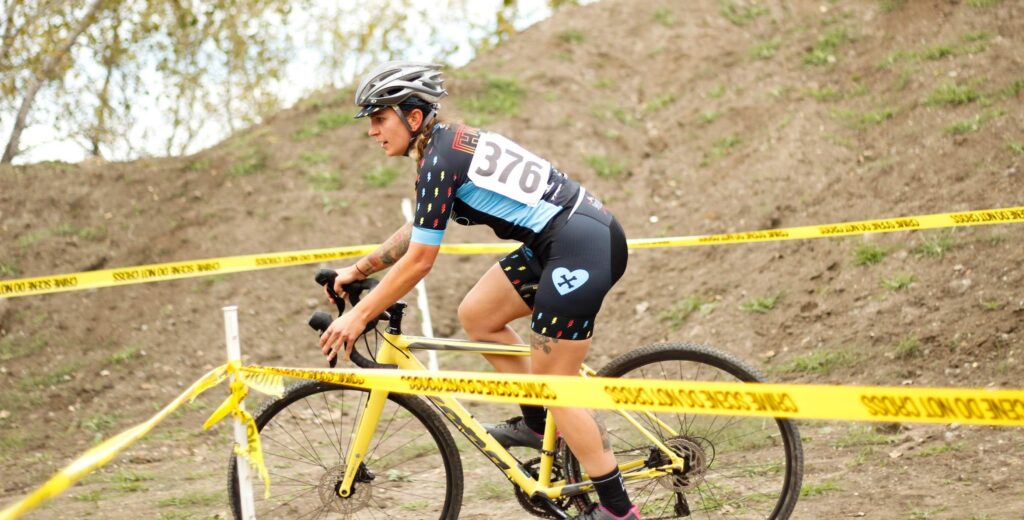
4. Listen To Your Body
Alden Hart – Engineering Team Lead, cat 4 road racer
The biggest thing I’ve learned over the last few years is how to listen to my body to prevent overtraining and burnout. I’ve had a couple times where I hit a wall- I can’t grind through a workout, and then the wheels really come off and it’s hard to get back into a training rhythm.
Usually all it takes is a small change – dialing down the intensity for the day or picking a similar but shorter workout. It’s made a huge difference towards keeping motivation high and progressing my training.
5. Set Things up in Advance
Ryan Standish – Customer Support Agent, pro MTB racer
For morning workouts, I like to have everything set up with shoes/towels/bottles ready the night before. It saves time, especially when I’m groggy and can barely find my way to the coffee machine in the morning. The same goes for afternoon workouts – if everything is set up so I can go straight into training when I finish work, it makes the process easier and helps keep my afternoons a little more open.
Adaptive Training
Get the right workout, every time with training that adapts to you.
Check Out TrainerRoad6. Commit to Starting Every Workout
Meghan Kelley – Copywriter, training and racing for 8+ years
When my motivation is running low, I commit to starting my workout and at least making it through the first set of intervals. I almost always feel better once I get started, and I usually end up finishing the whole workout after all. And even if I don’t, it feels better to get something done instead of completely skipping my ride, and it helps me stay on track for the rest of my training week.
7. Establish a Consistent Schedule
Nick Kanwetz – Customer Support Co-Director, road racer
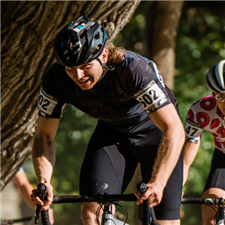
Every cyclist knows how powerful the mental side of things can be. To that end, I establish a training time that works best for my schedule, and hold myself to it every day. It helps with consistency, and forming that habit can be super powerful in helping with preparedness for each workout. Once you’re in that rhythm, it almost feels harder to skip a workout than to just get it done. Also, training consistently makes things easier for others in my life, since they know in advance when I’ll be unavailable each day.
8. Sleep Well
Evan Clements – Customer Support Agent, elite road racer
I started using TrainerRoad in 2017 and went from an FTP of 281w to a peak of 344w last season, and the biggest training lesson I’ve learned in that time is to sleep well. I used to cut sleep short to train more, but I don’t know what I was thinking. These days I pretty much go to bed and wake up consistently at the same time every day, and I try to give myself the opportunity to sleep at least 9 hours. Most days I can wake up without an alarm, and I actually want to get up instead of sleeping in. If I diverge from my sleeping routine, it noticeably impacts my training and subsequent recovery.
9. Progress Isn’t Always Linear
Calla Yarbrough – Product Designer, new to cycling
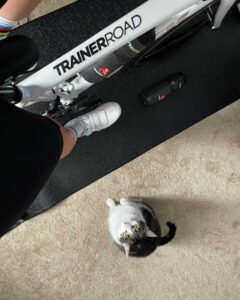
I have a background in long-distance running and swimming, but being a stranger to cycling was overwhelming. It was so foreign to me I didn’t know where to start. Thankfully, TrainerRoad has a wealth of resources, such as the blog, podcast, and forum. I used Plan Builder, took a ramp test, and completed a Sweet Spot ride. I was hooked.
It’s become a competition with myself to see how I can improve, but an important takeaway is that progress isn’t always linear. Sometimes I get a little too hard on myself trying to do better with every single workout, but even on tough days, I think of what my body’s accomplishing and how great training makes me feel. I love to just get on the bike, figure it out, and learn about my body and its limitations.
10. Have Fun
Ivy Audrain – Community Manager, pro cyclocross racer, former continental pro road racer
The biggest lesson I’ve learned in years of training is that I get faster when I’m having fun. This means embracing the fact that progress isn’t linear, and finding motivation in always having something to improve on.
If I do find myself engaging in harmful practices that detract from my well-being, like ignoring fatigue or under-fueling, I reassess how I can achieve my goals in a healthy, balanced way. By having fun and training with joy, I’m kinder to myself and ultimately more productive.
